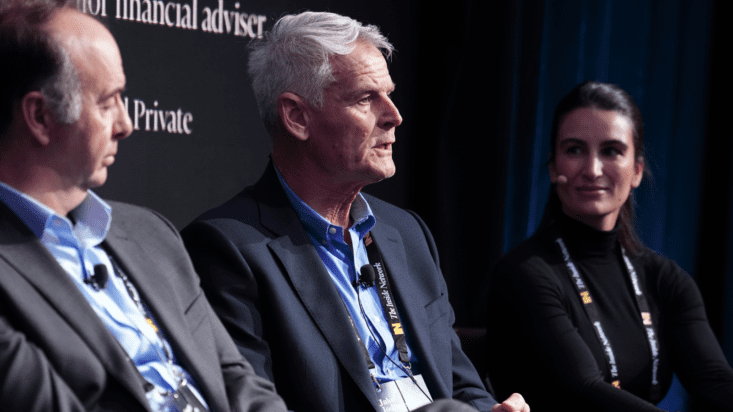Stakeholders reject overly complex products: ‘If I can’t explain it, I can’t use it’
As investment products move up the complexity spectrum, especially in the defensive and alternative sectors, financial advisers and stakeholders have delivered a timely reminder to providers: if we can’t understand your product well enough to explain it, then we have no use for it.
A panel to conclude The Inside Network’s Income and Defensive Assets Symposium was unanimous in saying its key takeaway from the event was the need for clear and concise transparency from product providers. That openness, however, comes with a caveat; if the product can’t be explained in a way that makes sense to financial advice clients, financial advisers won’t allocate it to portfolios.
The message was a clear one to the clutch of portfolio managers and business development managers who had spent the day representing some of the country’s most prominent fund managers.
“The transparency is really important,” said Jason Peterson, head of advice at mid-sized Sydney practice 5 Financial (pictured, left). “As IFAs we’re really the custodians of our clients’ money, and if we don’t understand it we’re not going to bother presenting it to the client.”
According to Pitcher Partners adviser Charlie Viola, the need for transparency should be viewed through a prism of risk.
“Risks are absolutely increasing and the number of managers out there is increasing quite significantly, which means that we have to be really diligent in terms of who we’re actually giving our money to, what the sponsor’s strength looks like and what processes are in place in terms of the due diligence before they’re lending our client monies out.”
What really irks, Viola explained, was fund managers who made no effort to simplify their product offering.
“They come and see you and they seem like the smartest guys in the room, they’ll tell you that they’re smarter than everybody else and why they’re protecting everyone’s capital,” he said. “The best thing we can do as advisors is the due diligence around who you’re allocating to, and making sure you’re working with groups where you absolutely know what the structure is, you know who the sponsor is and you know how you’re getting your money back at the at the other end.”
Perpetual Private senior financial adviser Renée Condylis (pictured, right) said it became “really apparent” on the day of the event that more clarity was needed from providers.
“It would be remiss of me not to mention the word ‘transparency’,” she continued. “I think there’s a bit of a balancing act in really trying to showcase a level of expertise and the way in which their area has developed, but also keeping it in simple terms, so that your clients feel confident and comfortable in what they’re what they’re investing in.”
Even the investment consultants, no strangers to complexity, touted the virtue of simplicity, with Atchison Consultants principal Jake Jodlowski (pictured, centre) signaling the importance of effective communication.
“If I can’t announce it, if I can’t understand the strategy completely and can’t enunciate it clearly to my clients, then I don’t want to use it. I can’t use it,” Jodlowski said.











